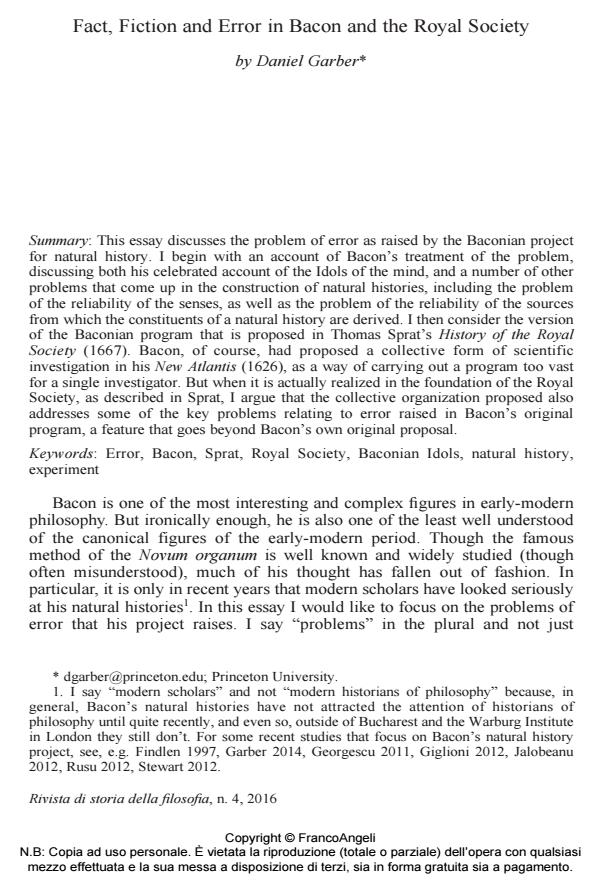Fact, Fiction and Error in Bacon and the Royal Society
Titolo Rivista RIVISTA DI STORIA DELLA FILOSOFIA
Autori/Curatori Daniel Garber
Anno di pubblicazione 2016 Fascicolo 2016/4
Lingua Inglese Numero pagine 16 P. 563-578 Dimensione file 55 KB
DOI 10.3280/SF2016-004002
Il DOI è il codice a barre della proprietà intellettuale: per saperne di più
clicca qui
Qui sotto puoi vedere in anteprima la prima pagina di questo articolo.
Se questo articolo ti interessa, lo puoi acquistare (e scaricare in formato pdf) seguendo le facili indicazioni per acquistare il download credit. Acquista Download Credits per scaricare questo Articolo in formato PDF

FrancoAngeli è membro della Publishers International Linking Association, Inc (PILA)associazione indipendente e non profit per facilitare (attraverso i servizi tecnologici implementati da CrossRef.org) l’accesso degli studiosi ai contenuti digitali nelle pubblicazioni professionali e scientifiche
This essay discusses the problem of error as raised by the Baconian project for natural history. I begin with an account of Bacon’s treatment of the problem, discussing both his celebrated account of the Idols of the mind, and a number of other problems that come up in the construction of natural histories, including the problem of the reliability of the senses, as well as the problem of the reliability of the sources from which the constituents of a natural history are derived. I then consider the version of the Baconian program that is proposed in Thomas Sprat’s History of the Royal Society (1667). Bacon, of course, had proposed a collective form of scientific investigation in his New Atlantis (1626), as a way of carrying out a program too vast for a single investigator. But when it is actually realized in the foundation of the Royal Society, as described in Sprat, I argue that the collective organization proposed also addresses some of the key problems relating to error raised in Bacon’s original program, a feature that goes beyond Bacon’s own original proposal.
Parole chiave:Error, Bacon, Sprat, Royal Society, Baconian Idols, natural history, experiment
Daniel Garber, Fact, Fiction and Error in Bacon and the Royal Society in "RIVISTA DI STORIA DELLA FILOSOFIA" 4/2016, pp 563-578, DOI: 10.3280/SF2016-004002